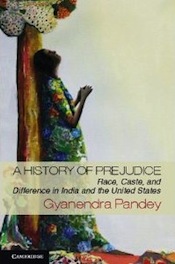Powerful hurricanes and disasters can actually increase economic activity, we are told. The point could be made in relation to Katrina and Andrew – and now it may be repeated with Sandy. One economist notes that this is “a problematic aspect of how we account for economic output.” It’s terrible when there is destruction on such a scale.And yet lost houses and property, not to say lives, do not show up in calculations of economic output, whereas a rebuilt house does!
Numbers dominate the airwaves and the political conversation in much of the world today. Gross Domestic Product, unemployment figures, interest rates, inflation, deficits, share markets.Something called the market rules, and mysteriously provides standards of growth, decline or stagnation in the economy. And governments exist to respond to market forces, maintain appropriate levels of investment and interest, and seek out profit at every opportunity. For that mysterious thing called the economy.
There is more to it. Our ruling elites seem completely at ease with Milton Friedman’s argument, “The only social responsibility of business is to increase its profits.” Let markets rule! Let the economy grow!
As the Republican nominee for the US Presidency has it, “I know how to grow the economy. I’ve done it myself. I’d let the market do its job.” He elaborates the claim:he wouldn’t raise taxes for anyone (not even for those who don’t earn enough to pay any). He’d even lower the tax rate for the rich, who will invest in the economy. As it happens, there isn’t any serious challengingof this view from other quarters either. The economy itself has become the society,one might think. That is the new common-sense in influential quarters.
This ruling common-sense forgets what so-called free markets and free speculation have done to produce the present global economic crisis. It forgets too that the majority of the world’s people continue to live in deeply unequal and often impoverished conditions.
Consider how the ruling slogans of today might sound to the 2.8 million people – more than half the city’s population – who live in Hyderabad’s 1,600 slums, most of them  living in extreme povertywithout access to medical services or basic civic amenities: that is, the majority of citizens in one of the fastest growing cities in one of the fastest growing economies in the world, India.
living in extreme povertywithout access to medical services or basic civic amenities: that is, the majority of citizens in one of the fastest growing cities in one of the fastest growing economies in the world, India.
The United States and Western Europe provide parallel cases. But it may help totake a rather different example. Cynthia Gallegos, a public school teacher and executive director of Focus Points Family Resource Center, a minority outreach project in Denver, notes that she and others like her could never have got to where they are but for the help they got, including grants to go to college: “Nobody can do it by themselves.” Except, one might say for accuracy, those who inherit their wealth and backing.
Something that we have not fully grasped as yet seems to be happening to our notions of democracy. The rule of numbers concerned primarily with economic and financial indices, only marginally related to the immediate concerns or living standards of the people, is only a sign of new trends. What is called political democracy has been reduced to a counting of votes – although even that process is put in doubt by the incidence of voter intimidation, fraud and misinformation, in this country as in many other parts of the democratic world. And the overwhelming power of states to control opposition (in the national interest), and of the state and the big business media to spread information or disinformation, has reduced the capacity of ordinary citizens to act on behalf of their own, their community’s and a wider common good.
In 2012, we need to remind ourselves and our political leaders of another history. The celebration of free markets and the percentage of growth is a far cry from stirring declarations of democracy as a government of, by and for the people. And a world removed from long fought for, and now long-established, notions of the rights of all, irrespective of caste, class, ethnicity, religious belief or sexual orientation; of human dignity as the founding principle of any democratic regime; and social justice as the measure of the good society.
Recall the International Declaration of Universal Rights, made at Philadelphia on May 10, 1944, in the wake of half a century (and more) of devastating war and imperialist plunder: “all human beings, irrespective of race, creed or sex, have the right to pursue both their material well-being and their spiritual development in conditions of freedom and dignity, of economic security and equal opportunity.” And – lest we forget – Franklin Roosevelt’s Four Freedoms: of speech and religion, but (no less important) from want and from fear.
Numbers, statistics, graphs of economic growth and financial risk and investment opportunities, are not substitutes for people. And let us reiterate the obvious. In a democracy, it is the majority of citizens who shouldrule: that is to say, think, deliberate, determine their own and their society’s future. That is surely central to the vision of a government of the people, by the people, for the people.
Gyanendra Pandey is the Arts & Sciences Distinguished Professor at Emory University. One of the founders of the Subaltern Studies Collective, his most recent book is A History of Prejudice: Race, Caste and Difference in India and the USA (Cambridge University Press, 2012). He can be reached atgpande2@emory.edu